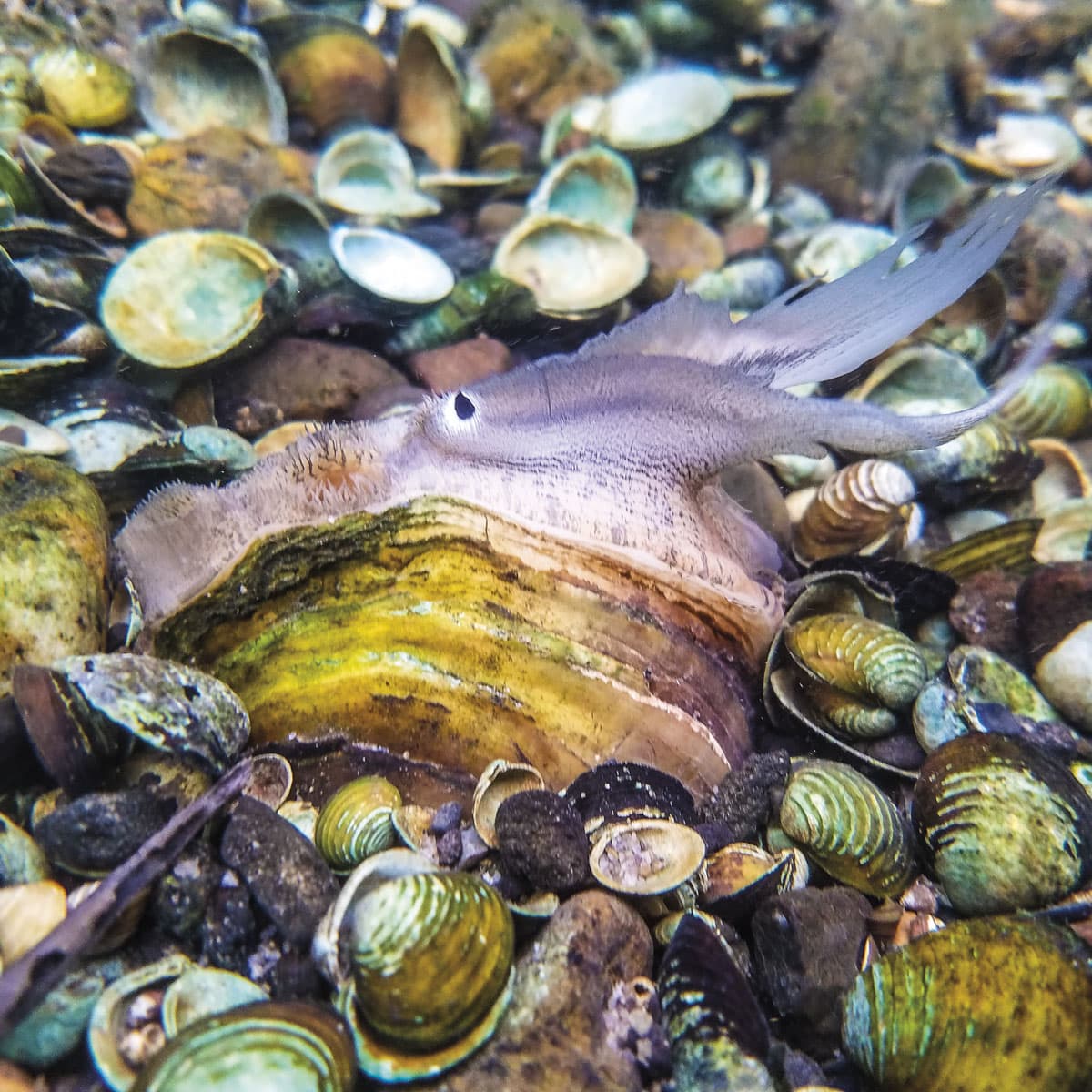Kidneys of the Rivers
Freshwater mussels (Unionidae) are of extreme importance to an aquatic ecosystem’s function and health. Probably the most well-known ecosystem service that mussels provide is ‘cleaning up the water.’ They are filter feeders; meaning they get their nutrients from straining small organisms and particles out of the water. Some species are even being reintroduced to areas of poor water quality, in hopes of decreasing the sediment and pollution load. One adult mussel can filter approximately 20 gallo

Freshwater mussels (Unionidae) are of extreme importance to an aquatic ecosystem’s function and health. Probably the most well-known ecosystem service that mussels provide is ‘cleaning up the water.’ They are filter feeders; meaning they get their nutrients from straining small organisms and particles out of the water. Some species are even being reintroduced to areas of poor water quality, in hopes of decreasing the sediment and pollution load. One adult mussel can filter approximately 20 gallons of water a day! Now, think of the impact a large, healthy population of mussels could have on a river ecosystem!
Unfortunately, it is estimated that 70% of mussel species in North America are listed as: of special concern, threatened, endangered or extinct. Freshwater mussels are particularly sensitive to changes in their environment because of their limited mobility and complex life cycles involving fish hosts. Anthropogenic (man-made) changes to our land and rivers such as pollution, dams and water extraction, decline the diversity, abundance and range of these organisms. Increased sedimentation and pollution from agriculture and industry degrades water quality so much that mussels cannot thrive.

Lampsilis bracteata (Texas fatmucket) from the San Saba River, Texas. Unearthed using SCUBA gear to go head first into giant submerged holes in the bank (just a little nerve-wracking).
The introduction of dams not only blocks the host fish passage for mussel larvae, but also alters the natural flow regimen of the river, changing productivity and therefore food availability for mussels. Water extraction and changing climate results in the increase of river temperatures and salinity, which creates unfavorable habitat conditions for certain species. These are just a few of the complications mussel populations face regarding human impacts on our land and in our waterways.

Glochidia attached to the gills of a fish host, as seen through a microscope.
Mussels function in rivers similarly to the function of kidneys in the human body. These ‘kidneys of the river’ filter out unwanted particles and toxins. Not only are mussels cleaning up the water column and sediments, but they provide many other ecosystem benefits, including their importance in food webs and the cycling of nutrients from aquatic to terrestrial systems via hungry raccoons and muskrats, along with numerous water column and sediment nutrient cycling processes.

Female Tritogonia verrucosa (Pistolgrip) from the Trinity River near Dallas, Texas.
Because mussels play such an important role in aquatic ecosystems and restorative conservation, it is important that we keep them and their habitats protected. One way to do this is by maintaining high fish diversity in waterways. Because mussel species are selective to their fish hosts, having higher diversity of fish will facilitate high diversity in mussel populations. And, isn’t it more fun anyway when you don’t know what species is on the end of your line? The next time you partake in catch and release of that mature, healthy fish, think of the positive impact you have on the mussel population by returning their host!
Mussel populations are slowly declining from our freshwater ecosystems via anthropogenic causes. Removing mussel populations from aquatic ecosystems is similar to removing both kidneys from your body … it would not function properly. There are many things you can do to help reverse this dangerous trend, including making your voice heard at local, regional, national and even global level discussions and decision making. You can have an impact on our aquatic ecosystems. Get out today, go get your feet wet and make your voice heard in any way possible to advocate for the health of our aquatic ecosystems!
Want more stories like this?
Join thousands of readers getting our best outdoor content. Free, no spam.



